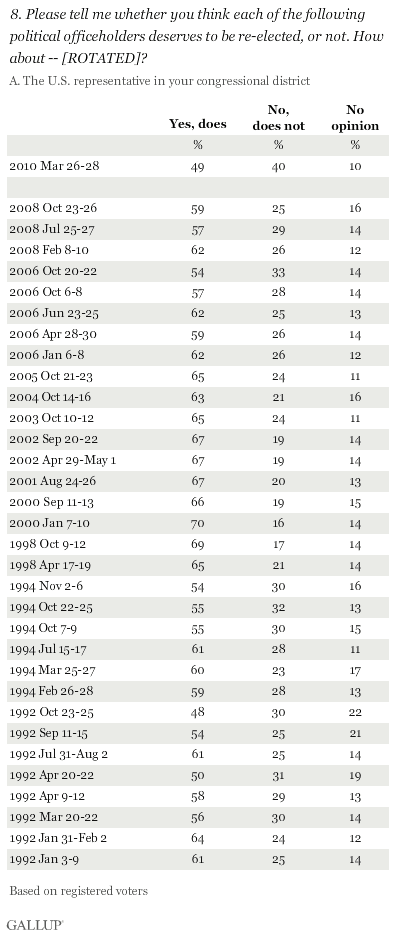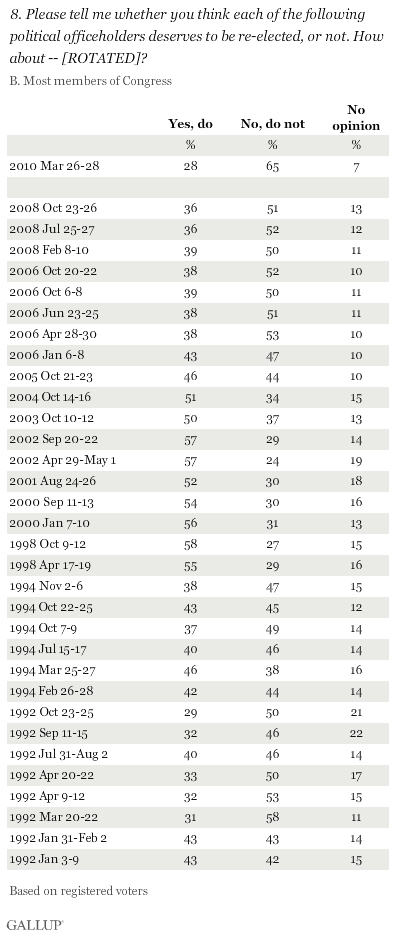PRINCETON, NJ -- A record-low percentage of U.S. voters -- 28% -- say most members of Congress deserve to be re-elected. The previous low was 29% in October 1992.
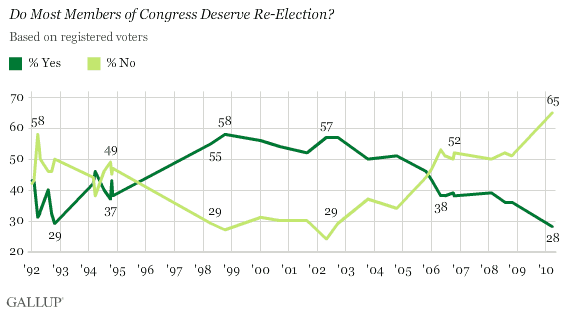
"Notably, independents -- who could be swing voters in many districts -- are the least supportive of the three party groups when it comes to re-electing their own member."
The trend for previous midterm elections reveals that the 28% re-elect figure puts the sitting majority party in a danger zone. In the two recent midterm elections in which the congressional balance of power changed (1994 and 2006), the percentage of voters saying most members deserved to be re-elected fell below 40%, as it does today. By contrast, in 1998 and 2002, when the existing Republican majority was maintained, 55% or better held this view.
Additionally, 65% of registered voters -- the highest in Gallup history, and by far the highest in any recent midterm year -- now say most members of Congress do not deserve re-election.
This strong rebuke of congressional incumbents comes from a March 26-28 USA Today/Gallup survey. The same poll finds 49% of voters, a near-record low, saying their own member of Congress deserves to be re-elected. This marks only the second time since Gallup began asking this question in 1992 that the figure has dipped below 50%, and the first on the doorstep of a midterm election.
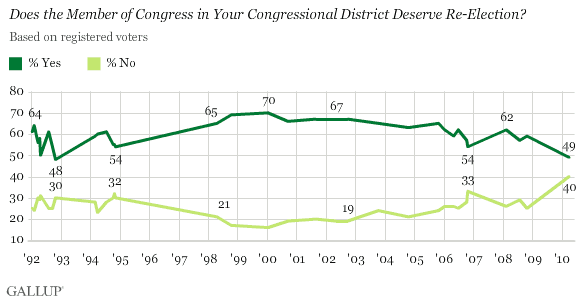
Again, the reverse finding -- the percentage specifically saying their own member does not deserve re-election -- is well above the levels seen in recent midterm years. This is in part because fewer voters today than in the past say they have no opinion on the question.
Although Democrats -- whose own party now holds a solid majority of House seats -- are much more likely than Republicans to say most members of Congress deserve re-election, not even half (46%) believe they do.
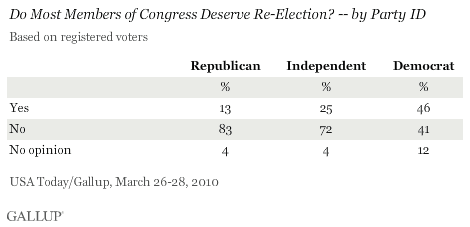
By comparison, Democrats are only a bit more positive than Republicans about whether their own member deserves re-election. This may reflect the heightened probability that the representatives from Republicans' and Democrats' congressional districts are from the respondents' own party, rather than from the opposing party. Notably, independents -- who could be swing voters in many districts -- are the least supportive of the three party groups when it comes to re-electing their own member.
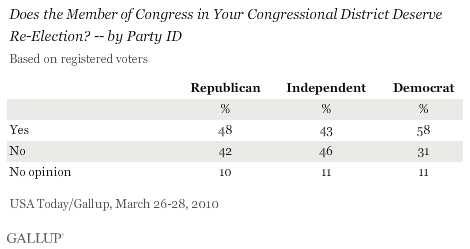
Bottom Line
Voters' anti-incumbent mood is like nothing Gallup has seen in the past four midterm election cycles. While that could have a negative impact on incumbents from both parties, the greater exposure of the Democrats by virtue of their majority status means greater risk for their candidates. Additionally, both parties have seen their majority control of Congress wiped out in midterm elections with less anti-incumbent fervor than is seen today. Simply put, the party in power seems to take the brunt of voters' wrath in these situations. Gallup's latest generic ballot readings on the vote for Congress, in which support for Democratic candidates is precariously low for that party, point to a similar conclusion.
Survey Methods
Results are based on telephone interviews with 968 registered voters, aged 18 and older, conducted March 26-28, 2010, as part of Gallup Daily tracking. For results based on the total sample of national adults, one can say with 95% confidence that the maximum margin of sampling error is ±4 percentage points.
Interviews are conducted with respondents on land-line telephones and cellular phones.
In addition to sampling error, question wording and practical difficulties in conducting surveys can introduce error or bias into the findings of public opinion polls.
